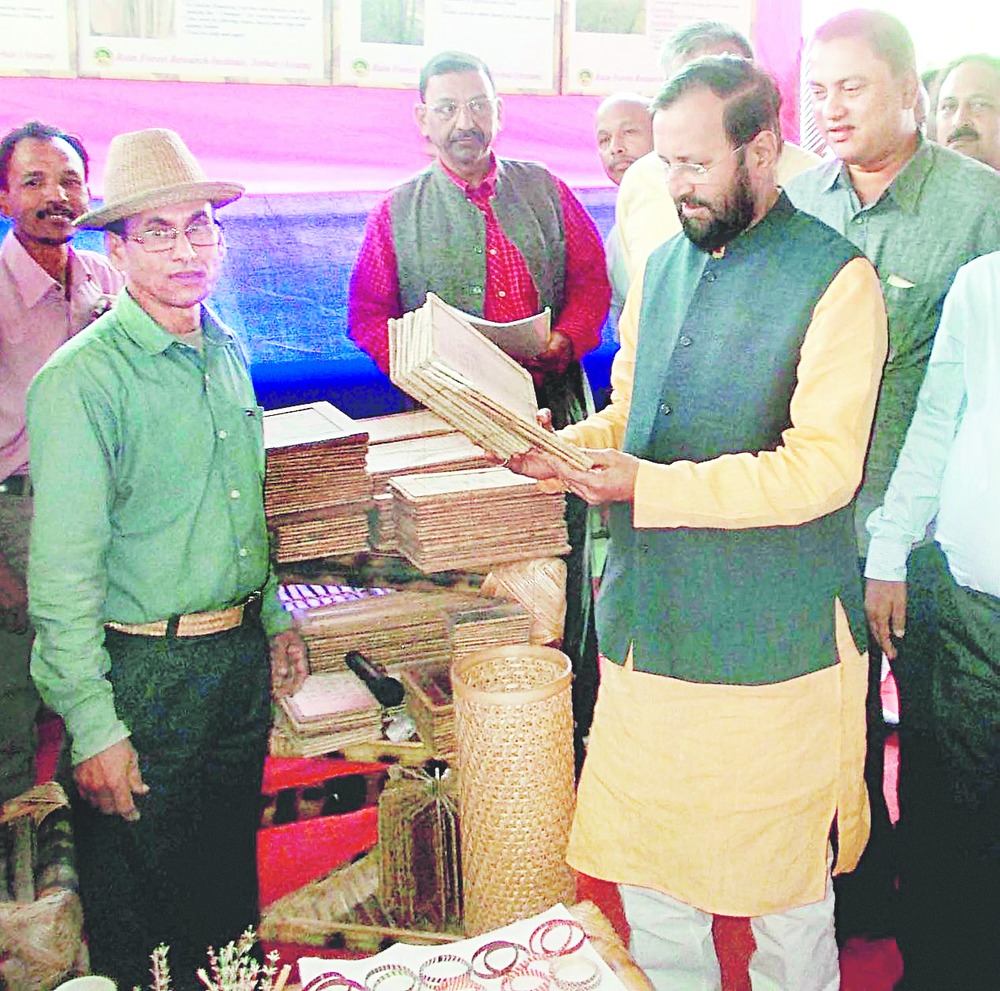
Jorhat, Nov. 16: Union environment and forest minister Prakash Javadekar today asked the Rain Forest Research Institute to find a solution to tackle the rapid growth of mimosa weed in Kaziranga National Park.
Javadekar was speaking at the inaugural function of a farmers' meet at the institute in Sotai.
Kaziranga has been facing the problem of uncontrolled mimosa growth, locally known as lajukilata, for last 15 years resulting in destruction of grasslands in the park. Grass is the fodder for majority of wildlife species in Kaziranga.The minister also inaugurated an exhibition of various products made by self-help groups with assistance from the institute.
The park authorities had been removing the plant mechanically each year. But the seeds that fall on the ground and the roots sprout again leading to massive growth of the weed.
Javadekar, while quoting park officials, said the weed started to grow after seeds from the nitrogen-fixing plant, which was imported by tea gardens from Southeast Asia post-Independence in the surrounding areas of Kaziranga, came inside the park through water channels.
He urged the institute to find out ways to wipe out the weed from Kaziranga and suggest other alternative nitrogen-fixing plants for tea estates.
A scientist at the institute told The Telegraph later that the institute in the past four years has taken up projects to study the mimosa problem and collected lots of data.
The institute also initiated a project to remove the weed by biologically controlled means such as "destroying through planting other plants or by some insects", he said. But it could not be carried forward as there was a risk to the park wildlife.
While calling for innovations, Javadekar urged the institute to evolve technologies that could benefit the farmers and society at large.
The Centre has decided to rank all scientific research institutes in India on the basis of quality and quantity of patents they get and on the positive impact of their research on farmers and living conditions of the people, he added.
Replying on rising man-animal conflicts, he said the Centre has earmarked Rs 40,000 crore under the Compensatory Afforestation Fund Management and Planning Authority, which would be sanctioned to the affected states for afforestation and to redevelop degraded forests to minimise wild animals straying out of forests. He said expanding forest areas and setting up waterbodies could curb straying of animals.











